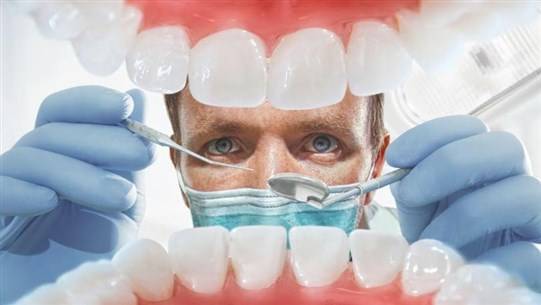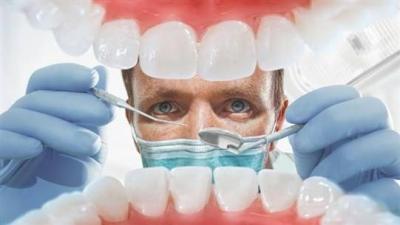"Don't let your tooth decay, or your home will collapse." Today, dental treatment requires a substantial budget, as the living crisis has left nothing untouched, "decaying" and "dollarizing" everything, including dental care, to the point where citizens are forced to borrow money to treat a decayed or suddenly broken tooth. The cost of treatment can reach $50, which is equivalent to a worker's salary. Despite this, the dentistry sector remains active and achieves significant profits, particularly in cosmetic treatments, according to one practitioner.
Most dentists do not disclose their profits; they often claim that the cost of a dental restoration or crown results in losses since the materials are purchased in dollars, and their fees are low compared to the past. Fatima never considered borrowing money for her dental treatment, as she used to get regular check-ups without issue. However, the dollarization of prices has rendered this nearly impossible. "What I produce in a month doesn't even cover half a tooth; the rest is debt because doctors have stopped the installment payment policy, which is now incompatible with the dollar's exchange rate."
In a dental clinic, you meet a woman who rushed in due to bleeding gums, a young man seeking relief from pain, and a man groaning from discomfort who is unable to afford the cost and is calling friends to secure the necessary amount. The dollar has dominated this sector, making the cost of a dental filling $20, and an extraction costs 500 thousand, plus an additional $50 for complete dental treatment. Crowning has become unaffordable for many, leading them to request "patching" or pain relief at the lowest possible cost.
It’s true that a certain segment has not been affected by the crisis, but there is a vast group of people who cannot visit a dental clinic due to the lack of funds, relying on painkillers while hoping for relief. Many of these individuals turn to clinics and health centers, which have become busier than ever because they remain "cheaper," but booking an appointment with a clinic doctor may take months, despite the unbearable pain.
Sohaila cries in pain; the clinic doctor refuses to admit her without an appointment. All she can do is buy painkillers and wait, as the doctor's appointments are fully booked. She struggles over how to manage the costs, as the farmer works daily to support her family. "If I could bear the pain, I would wait a month for my turn at the clinic, but the pain has overwhelmed me."
Dental treatment has become impossible for many, requiring a budget of its own. Dr. Ali is aware of the situation, stating, "The circumstances are tough, but we cannot reduce prices since we buy supplies in cash and dollars, and companies are unyielding. Thus, we have also ceased installment payments." According to him, "We have not raised our prices; on the contrary, the filling price was $50 and is now $20. However, the currency difference has complicated matters for many."
Most dentists agree on a unified rate, while some have increased it slightly, pricing according to their profits. Thus, dental care has followed the dollar's lead, making a visit to the dentist nearly impossible. However, Dr. Ali confirms that the sector thrives despite dollarization. "A citizen might postpone a visit to any doctor except the dentist, as the pain drives them to distraction."




